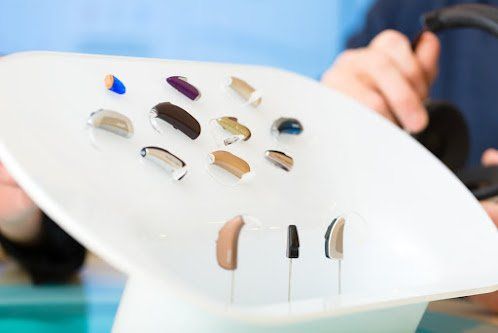4 Hearing Aid Questions | Accurate Hearing Technology Inc

People who suffer from hearing limitations can now enjoy more corrective options than ever before, thanks to ongoing advances in hearing aid technology. If you need accurate hearing correction, you can choose between a wide range of device styles, forms, and features. The sheer range of options may only complicate your quest.
Fortunately, the more you understand the pros and cons of specific kinds of hearing aids, the more effectively you can select a device that gives you the ideal mix of hearing correction, cosmetic acceptability, convenience, and comfort to suit your priorities. Ask yourself these four questions as you shop for hearing aids.
1. What Kind (and Degree) of Hearing Assistance Do You Need?
Hearing trouble can range in severity from a mild loss at specific frequencies to severe, full-frequency hearing loss. Not all hearing aids can compensate for the most serious issues. For instance, smaller in-ear or behind-the-ear models may not amplify sounds strongly enough for someone with profound hearing loss.
You may have lost hearing only in certain frequency ranges, with other frequency ranges coming in loud and clear. Non-medical hearing amplification devices boost all frequencies equally, which could actually make certain sounds too loud for you. Skips such devices in favor of audiologist-programmable hearing aids.
2. How Effectively Do You Want to Hide Your Hearing Problem?
Many people feel self-conscious about their hearing difficulties. Even when hearing aids successfully boost their hearing, they may still not want to call attention to the fact that they need help with their hearing. If you count yourself among them, you'll probably want to focus on the smallest (effective) hearing aids available.
Hearing aids that hide completely inside the ear canal offer the ultimate indiscretion. These tiny devices may go completely undetected by others while still offering an adequate hearing correction. Just keep in mind that if you tend to produce lots of earwax, this type of hearing aid may trigger your ears to produce even more.
3. What Dexterity Issues Might Influence Your Choice of Hearing Aid?
Hearing difficulties sometimes accompany other health or age-related issues that affect manual dexterity and coordination, from limited vision to arthritis in the hands. If small objects cause you to fumble around in frustration, you may experience problems with small in-ear hearing aids as opposed to behind-the-ear models.
Oddly enough, the very smallest hearing aid option may offer a ready-made solution for dexterity challenges. If you get the invisible-in-the-ear type of hearing aids, your audiologist will perform periodic removal, installation, and battery changes for you. Between audiologist visits, you shouldn't need to handle these tiny hearing aids at all.
Even if you can install and remove your hearing aids easily enough, you might still find replacing the minuscule batteries a challenge. You can get around this concern by choosing hearing aids that come with rechargeable batteries.
4. What Kind of Hearing Aid Will Feel the Most Comfortable?
If you plan on wearing your hearing aids most or all of the time, you'd better choose a hearing aid that meets your standards for comfort. For instance, in-ear hearing aids that block the ear canal can create a stuffy or clogged feeling called occlusion. Vented or open-backed receivers and earmolds can minimize this annoyance.
Eyeglass wearers should choose their hearing aids carefully, since the bulkiest behind-the-ear models may leave little room for the glasses' earpieces. This issue may prompt you to select an in-ear model instead. However, you might find that a miniature behind-the-ear model accommodates your glasses adequately.
Bear in mind that any kind of hearing aid will take some getting used to from a comfort perspective. Specific, long-term comfort problems may call for some modifications. For instance, if the hard plastic in your custom-molded earpieces causes discomfort, you may have better luck with a standard earpiece made of softer material.
Whatever your hearing aid needs and priorities, Accurate Hearing Technology Inc. can help you choose the ideal product for your individual needs. Contact our office today to discuss your corrective hearing device options.






